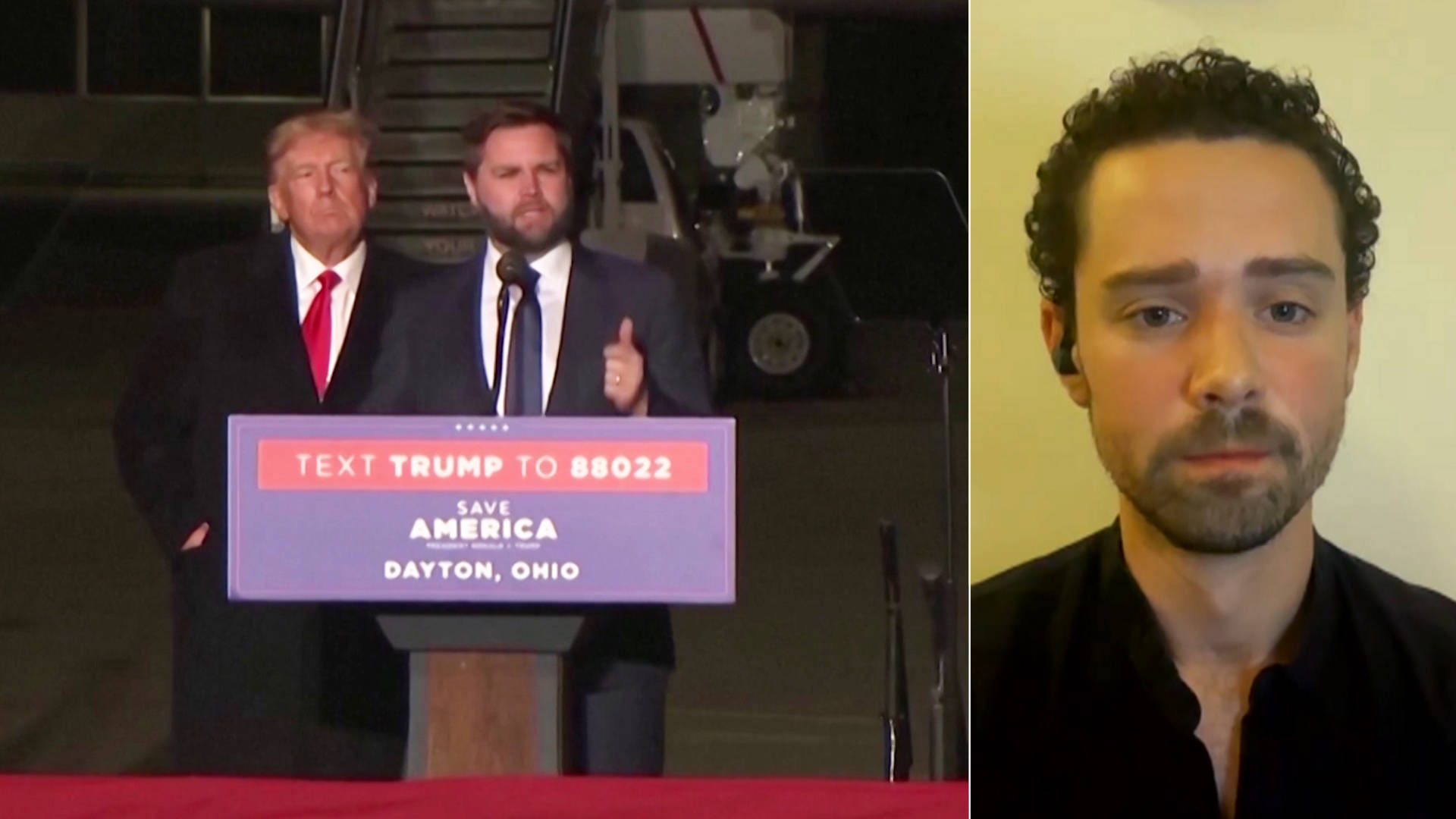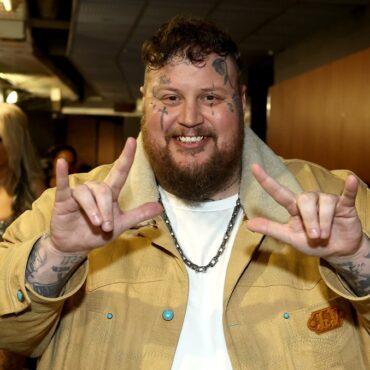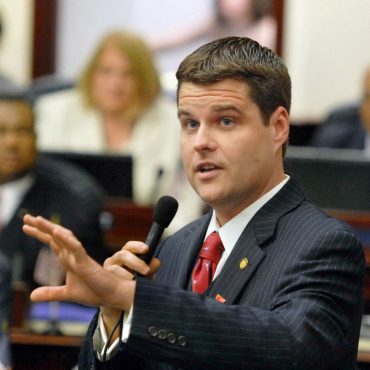This is a rush transcript. Copy may not be in its final form.
NERMEEN SHAIKH: The Republican National Convention is entering its final day. Donald Trump will accept the party’s nomination tonight. On Wednesday night, Ohio Senator J.D. Vance accepted the Republican vice-presidential nomination and gave his first speech since becoming Trump’s running mate.
Vance first gained fame as the author of the best-selling memoir Hillbilly Elegy: A Memoir of a Family and Culture in Crisis about growing up in Appalachia. Vance is a graduate of Yale Law School who served in the Marines and became a venture capitalist. He was elected to the Senate in 2022 in part thanks to billionaire tech investor Peter Thiel, who spent a record-breaking $10 million to support Vance’s campaign.
For years Vance was a vocal critic of Donald Trump. In 2016, he wrote in The Atlantic, quote, “Trump is cultural heroin. He makes some feel better for a bit. But he cannot fix what ails them, and one day they’ll realize it.” But on Wednesday night, Vance called Trump, quote, “America’s last best hope.”
SEN. J.D. VANCE: But, my friends, things did not work out well for a lot of kids I grew up with. Every now and then, I will get a call from a relative back home, who asks, “Did you know so-and-so?” And I’ll remember a face from years ago, and then I’ll hear, “They died of an overdose.”
As always, America’s ruling class wrote the checks. Communities like mine paid the price. For decades, that divide between the few with their power and comfort in Washington and the rest of us only widened. From Iraq to Afghanistan, from the financial crisis to the Great Recession, from open borders to stagnating wages, the people who govern this country have failed and failed again.
That is, of course, until a guy named Donald J. Trump came along. President Trump represents America’s last best hope to restore what, if lost, may never be found again, a country where a working-class boy born far from the halls of power can stand on this stage as the next vice president of the United States of America.
AMY GOODMAN: That was J.D. Vance speaking at the Republican National Convention last night here in Milwaukee for the first time as Republican vice-presidential nominee.
We’re joined right now by Ian Ward, Politico reporter who interviewed J.D. Vance at length over the course of a few months earlier this year for a Politico magazine profile headlined “Is There Something More Radical Than MAGA? J.D. Vance Is Dreaming It.” His new piece, just out, is “Are Republican Voters Ready for the Nerdy Radicalness of J.D. Vance? Donald Trump puts the New Right on the ballot.”
Ian Ward, it’s great to have you with us. You spent a number of weeks with J.D. Vance for this profile. Few journalists know him like you do at the national level. If you can respond to what he said last night on the stage of the Republican National Convention, and then talk about exactly who J.D. Vance is, his profile, his history?
IAN WARD: Yeah. I think we’ve seen that J.D. Vance can wear many hats as a politician. He can be the attack dog. He can be a sort of intellectual articulator of the nationalist populist right. He can be the memoirist that he was when he rose to national prominence with Hillbilly Elegy.
I think there was a question going into last night: Which version of him would we see? And I think we saw the memoirist come, come to the fore. He dug deep into his personal background. He rehashed some of the material that he first introduced in Hillbilly Elegy, talking about his childhood growing up in Ohio. And he struck a sort of more restrained tone than you’ve seen him strike in the past. I think it was maybe an indication that Trump can be his own attack dog during the campaign, and they might deploy Vance as a somewhat more restrained voice.
Politically, we expect to see Vance parked in the Rust Belt states — Michigan, Ohio, yeah, in the Midwest, in Wisconsin and some of the critical swing states. Of course, his background growing up in Ohio gives him some connection to those voters, so it’s unsurprising, I think, that we saw him leading into that element of his biography, but certainly something to keep an eye on going forward.
I think, in terms of his political trajectory, you know, you’re seeing his biography take center stage. That was not a given, you know? I think there was a world in which he wanted to turn the page and strike a new identity, now that he’s on the Republican ticket. But I don’t think we’re seeing that. I think we’re seeing him return very much to his Hillbilly Elegy roots as the basis of his political identity now.
NERMEEN SHAIKH: Well, you said, Ian, that you were impressed — after having spent all this time with him and doing this lengthy interview, that you were impressed by the breadth of his knowledge and interests. If you could say a little about what he spoke of in the interview with you, and what that might indicate about how he’ll be as a vice president and what his interests and priorities will be?
IAN WARD: Yeah. I mean, I think there are a lot of Republican politicians, especially in Congress and on the Hill, who have taken up the Trumpian talking points without trying to dig deeper into a somewhat coherent philosophy or theory that pulls them all together.
You know, Vance is a smart guy, despite what you think of his politics, right? He is a memoirist. He’s very adept at spinning personal tales into political lessons. He’s educated at Yale Law School, right? He’s got a sort of writer’s mentality, and he brings a writer’s and thinker’s approach to politics, regardless of what you make of his political ideas.
You know, in our interviews, we talked about a shockingly broad array of things. He brought up he had been thinking about the French President Charles de Gaulle and his legacy in postwar France. We talked about rail safety reform, which was one of the legislative battles he took up in his first year in the Senate. We talked about his intellectual influences, which include a whole range of writers and thinkers within the conservative movement. We talked about his family life in Washington. Regardless, again, of what you think of his politics, he’s an interesting, smart guy. He’s got very far-ranging interests, and he’s willing to talk about those things with reporters and with constituents, which makes him a little bit different, I think, than the average politician who tends to be sort of one-dimensional.
AMY GOODMAN: Well, Ian Ward, if you can tell us —
IAN WARD: I think what that says about his —
AMY GOODMAN: If you could tell us more about his background, because not everyone has read Hillbilly Elegy, and how important it is, and how the Republican convention is using, for example, his mother’s addiction, mainly raised by his grandmother? They are very much talking about fentanyl. They’re linking it to what they call and what he referred to as “illegal aliens,” talking about drugs being brought over the border, when the facts about who brings drugs over the border, what, 90% are brought by U.S. citizens at U.S. ports of entry. But tell us his personal story, about how he was raised, and how that shaped him as he made his way then to, as he said last night, the Ohio State and then Yale Law School, where he met his wife, who would then go on to clerk for two Supreme Court justices, one when he was a district judge — that was Brett Kavanaugh, a federal judge — and one when he was the Supreme Court justice, Roberts.
IAN WARD: Right, yeah. Vance grew up in Middletown, Ohio. It’s a small to medium-sized town about an hour north of Cincinnati in western Ohio. He claims to be descended from “hillbilly royalty.” That’s his term. A distant relative of his was allegedly involved in the beginning of the Hatfield-McCoy feud, the famous Appalachian feud in American history. But he had, you know, as he recounted in his book — and it’s important to take all this with a grain of salt, because memoirists have a way of taking poetic licenses with their past.
But he grew up in a sort of troubled, broken family. His parents got divorced when he was very young. His mother struggled with drug addiction. He was raised primarily, as he writes in the book, by his grandparents, who he calls Mamaw and Papaw. He spent his summers growing up returning to Kentucky, to coal country, where Mamaw’s family roots were. He says he felt like Kentucky was his sort of spiritual home, even though Middletown, Ohio, was his actual home. You know, and his mother’s struggles with drug addiction have become a central part of his political story, especially since he came to national prominence during the opioid epidemic.
I think the way that the Republicans have been using the opioid epidemic and tied it to immigration is sort of a good symbol for what they see as various assaults on national sovereignty — this is how they would put it — you know, that the United States has surrendered control of its borders and of its people to outside influences, to foreign invasions — to use a popular conservative term — that we’ve abandoned protecting our borders, and what that means is that immigrants, drug dealers, so on, like, are assaulting our American citizens and so on. So, you know, obviously, it’s a political riff that resonates with the Republican base. It’s also an interesting symbol, I think, for the way that Republicans think about the abdication of American sovereignty and the turning over of the governing of America to, you know, elites, whose allegiances are primarily to a cosmopolitan world untethered from American soil and American citizens and who have abandoned the American people to these nefarious forces that exist outside of us.
NERMEEN SHAIKH: And, Ian, could you talk about this term that you’ve written about, “the new right,” of which Vance is supposed to be somehow the intellectual light. You explain that the new right, one of the central tenets is that, quote, “the developments liberals point to as signs of ‘progress’ … are in fact engines of civilizational collapse.” So, if you could explain how Vance views this, and how that might shape the way that he influences or determines Trump’s policy, if he is elected president?
IAN WARD: Yeah. Vance is often described as “illiberal” or “anti-liberal.” He himself has used the term “post-liberal.” I think what he means by that, and just using that as a neutral description of his beliefs, he doesn’t believe in the prominence of small-L liberal democracy, not liberalism as a term for the left, but liberalism as a political theory, right? This is the belief that economic liberalization, technological innovation and the expansion of personal rights and the leveling of unjust social hierarchies actually leads to a better world for everyone. He doesn’t think that’s true. He thinks that small-L liberalism is, in effect, a sort of ideological superstructure to protect the economic interests of a certain type of person, an elite person, a cosmopolitan person, you know, a professional — the professional class, what on the left might be called the professional managerial class. So, he does not buy into the promise of small-L liberalism.
You know, he thinks that economic liberalization has led to economic destruction for communities. He thinks that social liberalization and the destruction of social hierarchies has led to cultural degradation and chaos. He thinks that technological innovation — and this is a belief shaped in large part by his relationship with Peter Thiel — he thinks that technological innovation has effectively been perverted by feckless elites who can’t get their act together and use technology to consolidate their control and their economic interests rather than help other people. Thiel famously has this line about technological innovation, that we wanted flying cars, and we got 140 characters, meaning technology had the potential to revolutionize our lives, but instead it gave us Twitter, which makes us unhappy, anxious and jealous of each other, right? And Thiel blames that very directly on the perversity and fecklessness of political and cultural elites, right? So, when Vance describes himself as a post-liberal, I think, or embraces the term “illiberal,” I think that’s what he’s getting at.
AMY GOODMAN: And as we talk about billionaires, what about Elon Musk saying he’s going to be giving $45 million to the Republican efforts to elect President Trump, every month leading up to November, which would be nearly $200 million? And J.D. Vance’s relationship with these tech millionaire and billionaires?
IAN WARD: Yeah. Vance, of course, after he went to Yale and briefly practiced law, he went into Silicon Valley, worked for Peter Thiel’s venture capital firm, and eventually spun off his own firm. It didn’t last very long. But, you know, he lived in California. He worked in Silicon Valley. He was tied into this world of right-wing Silicon Valley money and political influence. They, of course, have consolidated behind him. Thiel funded his 2022 Senate campaign.
You know, this is a serious tension, I think, in the Republican campaign. They’ve been campaigning on economic populism, what they call economic populism, and promising to protect the workingman. At the same time, they’ve been accepting enormous checks from Silicon Valley billionaires and millionaires and plumbing them for donations and hosting fundraisers out there. I’m, to be honest, not entirely sure what Vance — or, what Musk and co. see in Vance and Trump. I think they think he will be friendly to their economic interests, to their technological interests. They’ll do traditional deregulation. They’ll leave Silicon Valley alone. They’ll do tax cuts for billionaires, you know. And that’s all entirely possible, based on Trump’s first term. But I’m not entirely sure how they plan to navigate this tension. They might just ignore it, that, on the one hand, they’re doing economic populism, maybe, on the other hand, they’re cozying up to billionaires. It certainly strikes most people as a pretty stark contradiction.
AMY GOODMAN: And can you talk about J.D. Vance saying that Trump makes racial resentment worse by talking about rapist immigrants and banning all Muslims? He wrote in 2016, “Trump makes people I care about afraid. Immigrants, Muslims, etc. Because of this I find him reprehensible. God wants better of us,” he wrote in October of 2016 about President Trump. Ian?
IAN WARD: Yeah, yeah. I mean, the big question is to what degree Vance has undergone a genuine ideological transformation, and to what degree he has opportunistically molded himself into the Trumpian model for reasons of self-advancement and political advancement.
You know, his own explanation for his transformation is twofold. One is that he lived through the first Trump administration and saw that they were right substantively on the policy issues he cared about. The second is that he was radicalized by the liberal response to Trump’s presidency. You know, he at that point was ensconced in fairly rarefied liberal circles due to Hillbilly Elegy. And he says as he watched liberals respond to Trump and, in his terms, sort of lose their mind over what Trump was doing, he realized that he was not one of these people, and he went to active — took active measures to distance himself from that.
He gave an interview with Ross Douthat at The New York Times recently where he said, “I self-consciously burnt bridges with the liberal world that I had become so close with.” And part of how he did that was posting very inflammatory things to Twitter and on his various social media accounts and saying sort of nasty stuff on the campaign trail. So, it seems to have been a calculated strategy. Obviously, he’s embraced the GOP’s rather divisive rhetoric on immigration. But I think there’s a political calculation here that the more inflammatory he can be online and the more he can distance himself, in a sort of pugnacious way, from the Never Trump past that, you know, he had embraced at one point, the more he can ingratiate himself with the MAGA base. And I think, you know, we’ve seen that pay off: He’s the vice president now, so…
NERMEEN SHAIKH: And, Ian, if you could say — you know, your piece, the interview with him, “Is There Something More Radical Than MAGA? J.D. Vance Is Dreaming It.” So, what is more radical than MAGA? And how does he kind of embody that, I mean, starting perhaps with reproductive rights, his position on abortion?
IAN WARD: Yeah, well, he indicated to me in January that he supports a 15-week federal ban, with some exemptions for rape, incest and life of the mother. He since has waffled a bit on his abortion position. He’s come around to Trump’s point, Trump’s talking point, that abortion should be left to the states. So his abortion stance is somewhat unclear at this point, but he in the past has certainly expressed support for federal bans, and very restrictive federal bans at that.
I think what I mean when I say “something more radical than MAGA,” I think what distinguishes him from the Trump faithful, in some respects, is that he, even before he was considering being on the ticket, was thinking about the Trumpian movement in terms that transcended Trump. He never saw Trump, I don’t think, as the end-all, be-all of this movement. He sees Trump as a vehicle for a transnational populist nationalist revolution that could extend 10, 15, 20, a hundred years into the future. You know, he said to me when we spoke, “The country wasn’t screwed up in 10 years, and it’s not going to be unscrewed in 10 years.” So, he’s thinking of the populist nationalist project, to use his term, in a timeline of decades, not in a timeline of election cycles.
And I think, you know, we have some indication now that Trump has embraced that vision. He didn’t have to pick an heir apparent to the MAGA movement. He could have picked someone like Doug Burgum, who would have been a right-hand man for four years and then probably receded into the background. But he picked Vance, who people like Tucker Carlson, people like Heritage Foundation’s Kevin Roberts, people like Steve Bannon have all told to me that they see very clearly as the future of the nationalist right and not just a sort of extension of Trump.
AMY GOODMAN: Ian Ward, last night, J.D. Vance was introduced by his wife, Usha Vance, extremely accomplished lawyer, clerked for what ended up being two Supreme Court justices — right? — Kavanaugh and Roberts. And she met him at Yale Law School. She proudly talked about her Hindu heritage, that she’s a vegetarian, that he learned to cook as a vegetarian, and also his own conversion just a few years ago to Catholicism. Can you talk about his religious trajectory?
IAN WARD: Yeah. He’s written about his own religious trajectory, and it tends to date back to his introduction to Peter Thiel, which came while Vance was a student at Yale Law School in 2013, I believe. He attended a talk by Peter Thiel at Yale. The two became very close friends. Thiel, of course, has undergone his own spiritual transformation. But through Thiel, Vance was introduced to the writings of a philosopher named René Girard, who’s a French literary critic and philosopher, also a Christian apologist and a Catholic.
You know, over the course of 2013 to 2019, when he was accepted into the Catholic faith, he says he underwent this spiritual transformation. I mean, in the book, in Hillbilly Elegy, you can kind of sense this searching for a deeper spiritual foundation for him. You know, he grew up in Middletown, the descendants of these Scots-Irish folk who, you know, were generally Protestant in a sort of Protestant-lite way, you know, and he always was sort of disaffected at that — with that. He talks about, at one point in his teenage and college years, embracing atheism as a reaction to his — what he saw as sort of weak religious foundations of his childhood. And it’s landed him at Catholicism.
You know, I think it tracks a broader evolution on the right towards a sort of more muscularly conservative Catholic faith. He’s close with a handful of conservative intellectuals who themselves are very outspokenly Catholic and who juxtapose their own Catholic worldview to the liberal one that he rejects. And, you know, Catholic social teaching, which tries to infuse political and social life with Catholic theology, is right there. That’s an intellectual influence for him, as well. So I think his Catholicism is both a political story and a personal story.
AMY GOODMAN: We want to thank you so much, Ian, for joining us. Ian Ward, Politico reporter who’s interviewed J.D. Vance extensively over a course of a few months earlier this year for a profile he did for Politico magazine headlined “Is There Something More Radical Than MAGA? J.D. Vance Is Dreaming It.” Ian’s new piece, out this week, “Are Republican Voters Ready for the Nerdy Radicalness of J.D. Vance? Donald Trump puts the New Right on the ballot.”
Next up, historian Nancy Isenberg, author of White Trash: The 400-Year Untold History of Class in America. Stay with us.
[break]
AMY GOODMAN: “Aint Gonna Let Nobody Turn Me ’Round” by the Freedom Singers. Bernice Johnson Reagon, founder of the Freedom Singers, as well as Sweet Honey in the Rock, has passed away at the age of 81.











Post comments (0)